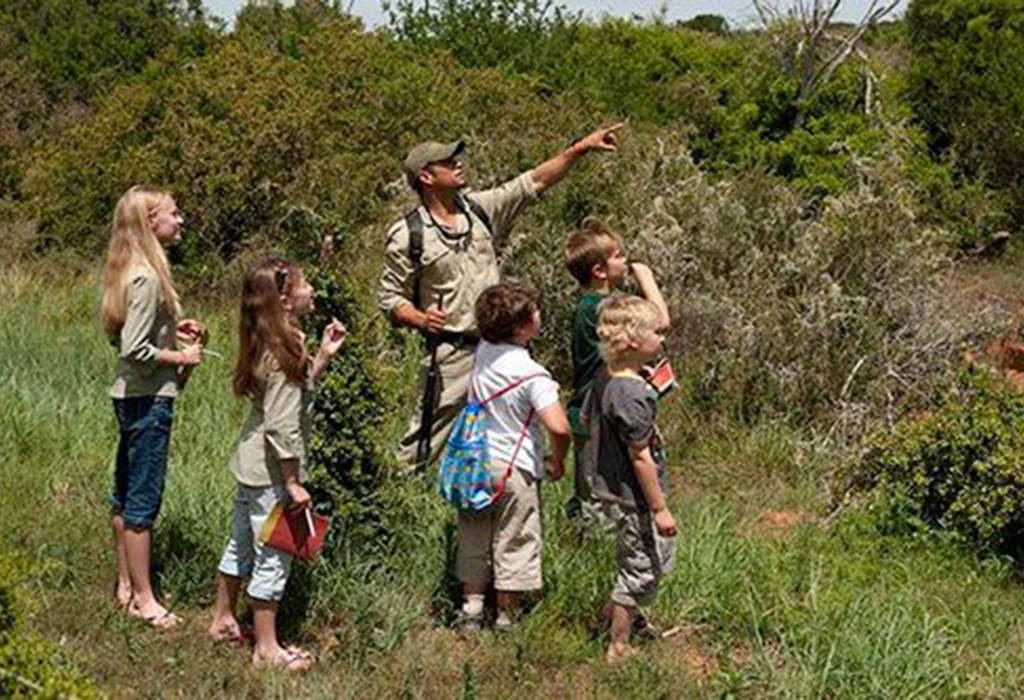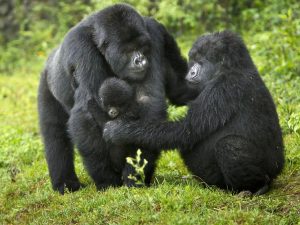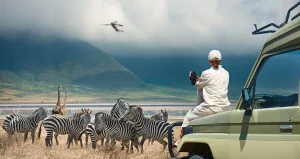Going on a safari in Africa is a dream for many families, and Uganda has rapidly become one of the top destinations for wildlife adventures. From vast savannahs to lush rainforests, Uganda offers an incredible variety of experiences for nature lovers. But for parents planning a trip, one pressing question often arises—is it safe to bring children on a safari in Uganda?
The simple answer is yes, Uganda is safe for family safaris, provided that the trip is planned carefully with appropriate precautions. Uganda’s national parks and conservation areas are well-managed, with many safari operators offering tailored family experiences that balance adventure with safety. That said, taking children into the African wilderness requires preparation, awareness, and choosing the right locations and activities. Is it Safe to Bring Children on a Safari in Uganda?
We provide a comprehensive, practical, and detailed guide to ensure a safe and rewarding safari experience for families traveling with children in Uganda. Is it Safe to Bring Children on a Safari in Uganda?
Are Uganda’s National Parks Safe for Children?
Uganda’s major national parks—such as Queen Elizabeth National Park, Murchison Falls National Park, and Lake Mburo National Park are generally safe for families. These parks are patrolled by professional rangers, and safari operators are well-versed in safety protocols.
Safety in national parks is largely about minimizing risk by following the rules. Children must always be supervised, remain inside vehicles during game drives, and stay within designated areas at lodges or camps. In well-maintained and reputable lodges, boundaries are marked, and staff are trained to provide assistance in any situation.
Additionally, Uganda is politically stable, English is widely spoken, and tourism infrastructure has significantly improved in recent years. While the country is still less commercialized than its neighbors Kenya and Tanzania, this can actually work in a family’s favor—offering a more personal, immersive, and less crowded safari experience.
Are Certain Safari Activities Unsafe or Restricted for Kids?
While Uganda is safe overall, not every activity is suitable for all ages. Some wildlife encounters, particularly those involving close interaction with large animals or long treks in remote terrain, come with age restrictions. Here’s what you need to know.
Gorilla Trekking:
Uganda is famous for its mountain gorillas, but gorilla trekking in Bwindi Impenetrable National Park and Mgahinga Gorilla National Park is restricted to individuals aged 15 and above. This is due to the physical demands of the trek and the importance of minimizing stress to the gorillas. Younger children are not allowed, regardless of parental supervision.
Chimpanzee Tracking:
Chimpanzee tracking in Kibale Forest, is another highlight. However, the minimum age is typically 12 years. The experience includes long walks and close encounters with unpredictable primates, which is not suitable for young kids.
Game Drives:
Game drives are safe and can be incredibly enjoyable for children, especially in parks like Queen Elizabeth or Murchison Falls. While there is no official age restriction, children should be mature enough to stay quiet, seated, and calm during sightings. Some lodges offer private game drives, allowing flexibility to take breaks or return early if children get tired.
Boat Safaris:
Boat safaris, such as those on the Kazinga Channel or the Nile, are usually safe for children as long as they wear life jackets and are closely monitored. These trips offer the chance to see hippos, crocodiles, elephants, and countless bird species from a safe distance on the water.
Nature Walks and Bush Walks:
Short guided walks near lodges or in safe zones may be available for children over the age of 5. However, most official walking safaris have a minimum age requirement of 12 to 15 years due to the unpredictability of wildlife encounters on foot.
What Are the Key Safety Tips When Bringing Children on Safari?
Ensuring the safety of your children while on safari requires both awareness and preparation. Here are practical safety measures all families should follow:
1. Choose Child-Friendly Lodges:
Not all lodges cater to families, so be sure to select accommodations that explicitly welcome children. Look for lodges that offer family rooms, child-friendly meals, safety barriers, and staff trained to work with kids.
2. Keep Children Supervised at All Times:
Wild animals can enter even well-fenced lodges, particularly at night. Never allow children to roam alone, especially after dark. Always accompany them when walking around camps or heading to dining areas.
3. Stay Inside Vehicles During Game Drives:
Never allow children to stick hands, cameras, or heads out of safari vehicles. Even animals that appear calm can react unpredictably. The guide’s instructions must be followed strictly.
4. Avoid Loud Noises and Sudden Movements:
Children should be prepared to remain calm and quiet during animal sightings. Loud noises or fast movements can startle animals and cause dangerous situations.
5. Use Mosquito Nets and Insect Repellent:
Malaria is present in Uganda, so using mosquito nets at night and applying insect repellent during the day is critical. Also, consult your doctor about malaria prevention medication appropriate for children before your trip.
6. Pack a Medical Kit and Personal Essentials:
Carry a travel medical kit with essentials such as antiseptic cream, band-aids, antihistamines, fever reducers, and motion sickness tablets. Always have sunscreen, hats, and plenty of water for hydration.
7. Avoid Night Walks or Drives with Young Children:
Night safaris and bush walks can be thrilling, but they are not suitable for younger children due to limited visibility and a higher risk of encountering predators or snakes.
How Can You Keep Children Engaged on Safari?
Safaris are not just about safety they should also be fun, educational, and inspiring. Fortunately, Uganda offers plenty of ways to keep young minds engaged.
Shorter Game Drives:
Children often have shorter attention spans, so opt for half-day or private game drives rather than long, all-day excursions. Many lodges allow customized schedules to match your family’s pace.
Wildlife Checklists and Spotting Games:
Bring along animal spotting guides or checklists to turn game drives into a fun challenge. Who can spot the most animals or birds? This keeps kids focused and entertained during longer drives.
Binoculars and Cameras:
Let your child use a small pair of binoculars or a simple digital camera. This not only makes them feel involved but also enhances their observational skills and creates lasting memories.
Cultural Experiences:
Many safari itineraries include visits to local villages or schools. These interactions can be deeply enriching for children, helping them understand different cultures and ways of life.
Books and Safari-Themed Activities:
During downtime at the lodge, provide books, coloring materials, or wildlife-themed puzzles. Some family-oriented lodges even have nature-based learning activities and storytelling sessions in the evenings.
What Should You Pack for Children on Safari?
Packing wisely can make a huge difference when traveling with children. Here is a checklist of essential items to bring:
-
Comfortable, breathable clothing in neutral colors
-
Long-sleeved shirts and pants for mosquito protection
-
Wide-brimmed hats and sunglasses
-
High-SPF sunscreen and insect repellent
-
Refillable water bottles
-
Lightweight rain jackets (weather in Uganda can be unpredictable)
-
Binoculars and age-appropriate cameras
-
Child-safe medications and a basic first aid kit
-
Snacks, especially for long drives
-
Toys, games, and books for entertainment
-
Personal documents, including birth certificates if needed
What About Health and Emergency Services?
Access to healthcare in Uganda is decent in major towns and cities, but very limited in remote safari areas. This makes prevention the most important strategy.
Before your trip:
-
Visit a travel clinic at least six weeks before departure
-
Ensure all standard vaccinations are up to date
-
Consider vaccinations for yellow fever, typhoid, hepatitis A and B
-
Carry any prescription medications and child-specific formulas or products
In case of emergencies, reputable lodges often have arrangements for medical evacuation or connections with nearby hospitals. Make sure your travel insurance covers medical emergencies, evacuation, and children specifically.
Should You Bring Your Children on a Safari in Uganda?
Yes, if planned correctly, bringing children on a safari in Uganda can be an unforgettable, safe, and enriching experience. Uganda offers raw beauty, unmatched wildlife encounters, and welcoming people. For families looking to connect with nature and each other, there are few adventures more profound. Is it Safe to Bring Children on a Safari in Uganda?
While some activities like gorilla trekking may be off-limits to younger children, there are countless other ways to engage kids from game drives and boat safaris to cultural tours and nature walks. With child-friendly lodges, experienced guides, and the right preparation, a Ugandan safari can ignite a lifelong love for wildlife and conservation in your child.
The key lies in choosing the right itinerary, maintaining constant supervision, and focusing on safety without compromising the sense of wonder. Uganda’s wilderness, when respected and approached responsibly, is not only safe for children—it is one of the most magical classrooms on Earth. Is it Safe to Bring Children on a Safari in Uganda?
Uganda isn’t just a safari destination for seasoned travelers—it’s a place where families can grow, learn, and bond in the heart of Africa’s wild beauty.




